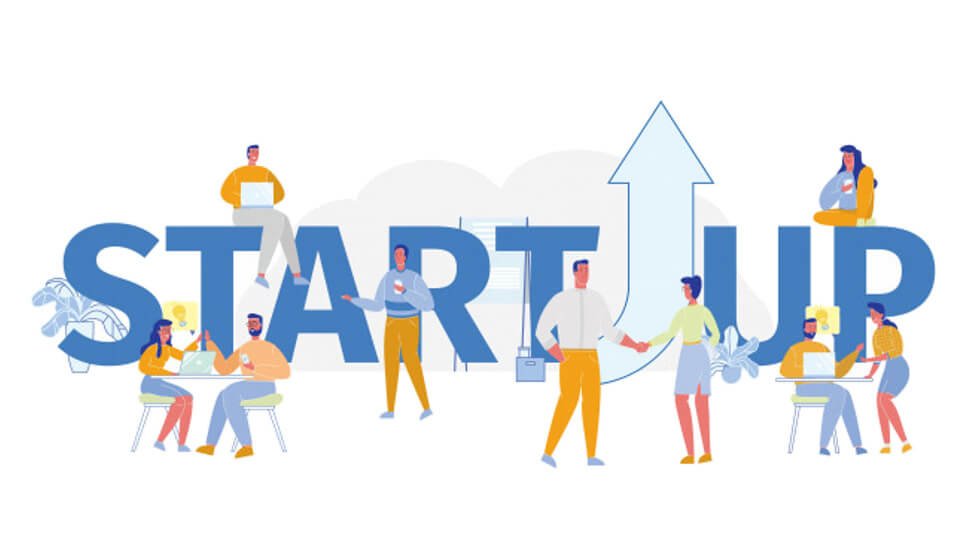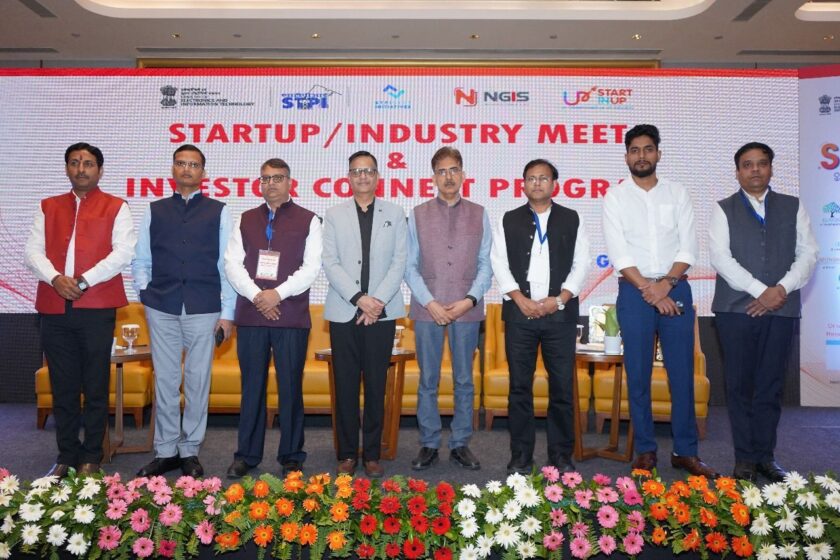Lucknow: Young startups are increasingly leveraging technology to enhance performance, streamline operations, and gain a competitive edge. Here’s how they are using various technological advancements to drive growth and efficiency:
1. Artificial Intelligence (AI) and Machine Learning
- Data-Driven Decision Making: Startups are utilizing AI and machine learning algorithms to analyze large datasets, identify trends, and make informed decisions. This capability allows them to predict customer behavior, optimize marketing strategies, and personalize user experiences, thereby improving overall performance.
- Chatbots and Customer Service Automation: AI-powered chatbots are being employed by startups to handle customer inquiries, provide support, and manage bookings or transactions around the clock. This automation not only reduces operational costs but also enhances customer satisfaction by providing instant responses.
- Product Recommendations: E-commerce startups, for instance, use machine learning to offer personalized product recommendations based on user behavior and preferences, leading to increased sales and customer loyalty.
2. Cloud Computing
- Scalability and Flexibility: Cloud computing provides startups with scalable IT infrastructure, allowing them to easily expand their operations without significant upfront investments in hardware. This flexibility is crucial for managing growth, particularly in the early stages of a startup.
- Cost-Effective Operations: Startups leverage cloud-based services for everything from data storage to software applications, which helps in reducing costs associated with physical infrastructure. This model enables startups to pay only for what they use, aligning costs with growth.
- Remote Work and Collaboration: The cloud facilitates remote work by providing access to data and applications from anywhere. Startups use cloud-based collaboration tools like Slack, Asana, and Google Workspace to manage teams, projects, and communications efficiently.
3. Automation and Robotics
- Process Automation: Startups are automating repetitive tasks through Robotic Process Automation (RPA), reducing the need for manual labor and minimizing human error. This is particularly useful in industries like manufacturing, logistics, and finance, where automation can lead to significant time and cost savings.
- Robotic Solutions: In sectors such as retail and agriculture, startups are adopting robotics for tasks like inventory management, order fulfillment, and precision farming. These technologies not only improve efficiency but also enable startups to operate with leaner teams.
4. Blockchain Technology
- Secure Transactions and Contracts: Blockchain technology is being used by startups to enhance security and transparency in transactions. For instance, fintech startups leverage blockchain for secure payment processing and decentralized finance (DeFi) solutions, reducing the risk of fraud and improving trust among users.
- Smart Contracts: Startups are also utilizing smart contracts—self-executing contracts with the terms directly written into code—to automate and enforce agreements without the need for intermediaries. This can streamline processes and reduce legal and administrative costs.
- Supply Chain Transparency: Blockchain is being used in supply chain management to track the origin and journey of products, ensuring transparency and authenticity. Startups in industries like food and fashion use this technology to provide consumers with verifiable information about product sourcing.
5. Internet of Things (IoT)
- Connected Devices: IoT technology allows startups to create connected devices that collect and exchange data, enabling smarter decision-making. For example, in the health tech industry, startups use IoT to develop wearable devices that monitor vital signs and track health metrics in real-time.
- Smart Homes and Cities: Startups in the smart home industry leverage IoT to create products that automate household tasks and improve energy efficiency. Similarly, in urban planning, IoT solutions are used to optimize traffic management, reduce energy consumption, and enhance public safety.
6. Augmented Reality (AR) and Virtual Reality (VR)
- Enhanced Customer Experience: AR and VR are being used by startups to create immersive customer experiences. For example, in the retail industry, AR apps allow customers to visualize how furniture will look in their homes before making a purchase, while VR can provide virtual tours of properties or products.
- Training and Education: Startups in the edtech space are utilizing VR to offer interactive and immersive learning experiences. This technology is also used in employee training, particularly in industries where hands-on practice is critical, such as healthcare and aviation.
7. Mobile Technology
- Mobile-First Solutions: Startups are focusing on mobile-first solutions, recognizing the growing importance of mobile devices in everyday life. Mobile apps are being developed for a wide range of services, from banking and shopping to healthcare and fitness, making services more accessible and convenient for users.
- Mobile Payments and Wallets: Fintech startups are capitalizing on the shift towards cashless transactions by developing mobile payment solutions and digital wallets. These technologies facilitate secure, fast, and convenient financial transactions, particularly in regions with limited access to traditional banking.
8. Advanced Analytics
- Performance Tracking: Startups use advanced analytics to track key performance indicators (KPIs) in real-time, allowing them to make data-driven decisions and quickly respond to market changes. Analytics tools provide insights into customer behavior, operational efficiency, and financial performance.
- Predictive Analytics: Predictive analytics is being used to forecast future trends and outcomes, helping startups in sectors like retail and finance to anticipate demand, manage inventory, and mitigate risks. By leveraging historical data, startups can develop strategies that are more likely to succeed.
9. Cybersecurity
- Protecting Data Integrity: With the increasing reliance on digital operations, cybersecurity has become a critical concern for startups. They are investing in advanced cybersecurity solutions, such as encryption, firewalls, and multi-factor authentication, to protect sensitive data and ensure compliance with regulations.
- Cybersecurity Startups: Interestingly, some startups are focusing specifically on cybersecurity, developing innovative solutions to address the growing threats in the digital landscape. These startups offer services ranging from threat detection to incident response, helping other businesses safeguard their operations.
10. Sustainable Technology
- Green Tech Solutions: Startups are increasingly adopting sustainable technologies to minimize their environmental impact. This includes using renewable energy sources, developing energy-efficient products, and incorporating sustainable practices into their operations.
- Sustainability-Focused Startups: Some startups are built around sustainability, offering products and services that promote environmental responsibility. For instance, startups in the clean tech sector are developing solutions for renewable energy, waste management, and sustainable agriculture.
Technology is a driving force behind the success of young startups, enabling them to innovate, scale, and compete in a dynamic market. By leveraging advancements such as AI, cloud computing, IoT, and blockchain, startups are not only improving their operational efficiency but also delivering enhanced value to customers. As technology continues to evolve, startups that effectively harness these tools will be better positioned to thrive in the competitive landscape, contributing to a more innovative and sustainable future.










